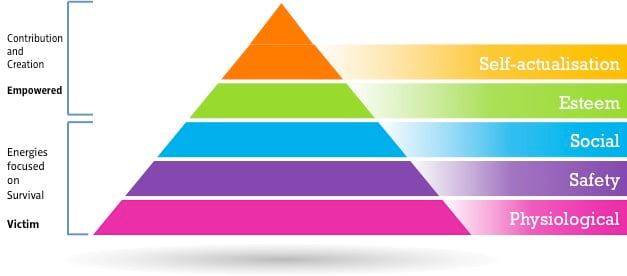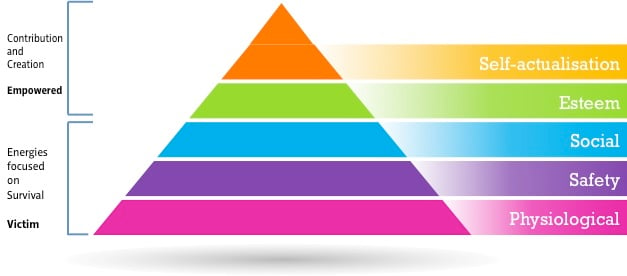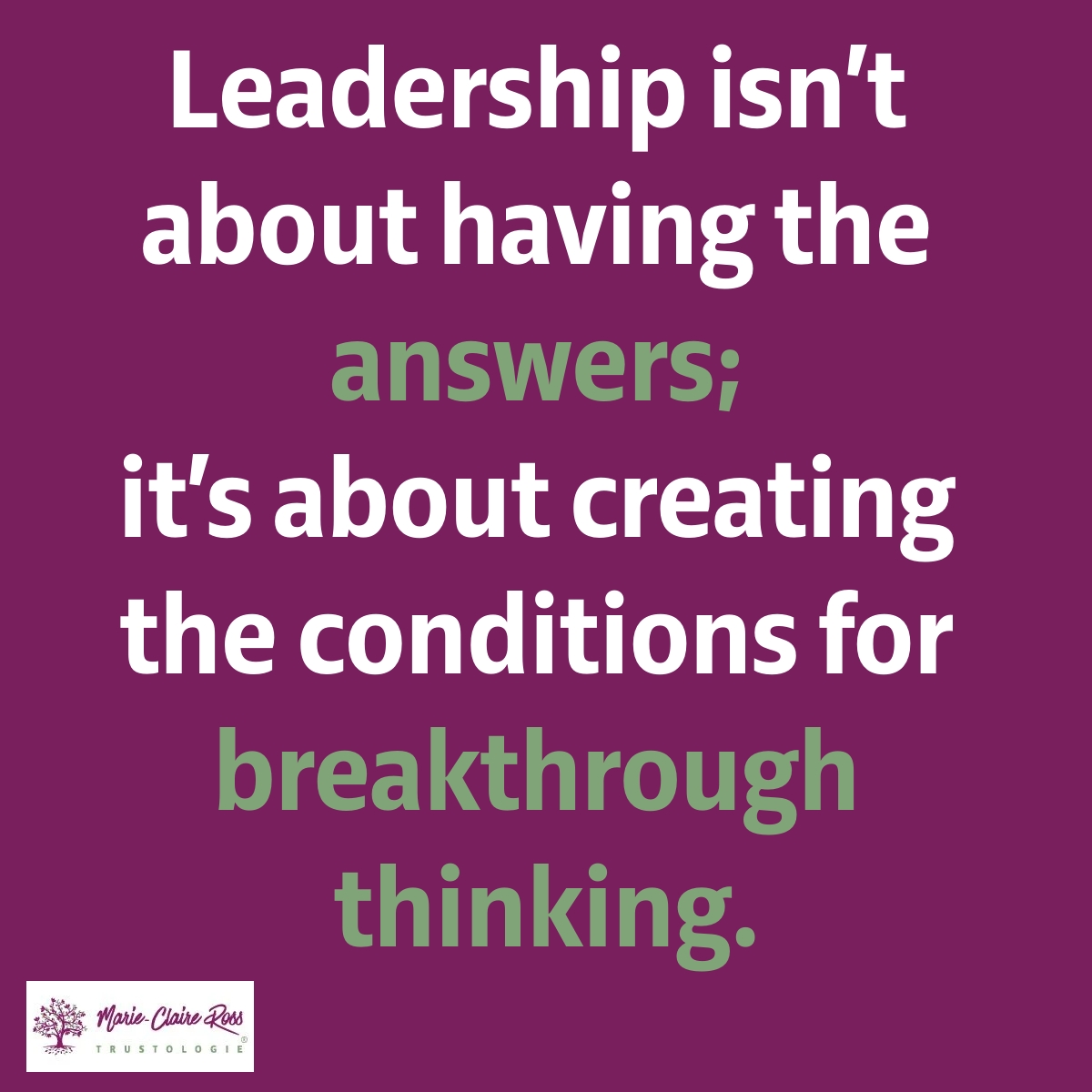8 min read
Beyond the "Why": 5 Coaching Secrets to Unlock Curiosity in Leadership
When my daughter was 17 months old, she discovered a superpower: the word “Why?”For the next two years, it was her response to almost everything.
Develop leaders, strengthen executive teams and gain deep insights with assessments designed to accelerate trust and performance.

Transform how your leaders think and perform with keynotes that spark connection, trust and high-performance cultures.

Explore practical tools, thought-leadership and resources to help you build trusted, high-performing teams.

Trustologie® is a leadership development consultancy founded by Marie-Claire Ross, specialising in helping executives and managers build high-trust, high-performing teams.

2 min read
Marie-Claire Ross : Updated on February 2, 2021

As Abraham Maslow taught in his Hierarchy of Needs, we can’t concern ourselves with higher goals (self-mastery and purpose) until we have the necessities of life. These being physiological (food and water), physical safety and social connection.
In the workplace, employees need confirmation that their fellow co-workers are looking out for them. They need to feel connected and that colleagues really care about them.
At the same time, employees need to believe the work they do matters, that they’re making an impact and others appreciate their work. And that they have a clear future within the organisation.

When we can trust that the organisation and leaders will do the right thing by us, we are able to create and contribute. Or in the parlance of Maslow – be self-actualised. Maslow (1943) describes this level as the desire to accomplish everything that one can, to become the most that one can be. The realisation of our potential, self-fulfillment, seeking personal growth and peak experiences.
But if we are waiting for reassurances that we are safe and that we are accepted by our team, we’re more likely to be focusing our energies on survival rather than creation. We’re unable to commit and believe in the vision. Behaviours our limbic brain feels will keep us safe. We stay invisible, procrastinate and feeling unworthy. We wallow in victim mode - blaming others and avoiding responsibility.
Humans need to feel certain in their surroundings. After all, the old fear that we might be thrown out of the tribe and attacked by a tiger is still deeply embedded in our programming.
Leaders need to help their direct reports, their peers and even themselves get out of the victim zone and into the empowered zone. That's because it's where you find high performance. It requires creating a psychologically safe space where people can trust those around them.
In other words, employees felt free to be themselves, make mistakes and be appreciated for working extra hours. It allows employees to become more emotionally invested in their organisation, knowing they are fully supported by peers. And that they won't be thrown under the bus if things go wrong.
Trust gives us a sense of safety to explore and understand our world. In a business context, it means we can commit to actions, make decisions faster and have the confidence to buy into a big vision and innovate. It provides us with the reassurance we need to contribute and create rather than withdraw and self-protect.
It is important for leaders to emotionally engage their employees through communicating "we are in this together." It really is the key to creating high performing, accountable teams. Of course, high trust leaders have worked hard at this during the pandemic tapping into our natural need to feel a sense of belonging.
What are you doing to help your team members (or yourself) move out of the survival mode and into creation and contribution?

8 min read
When my daughter was 17 months old, she discovered a superpower: the word “Why?”For the next two years, it was her response to almost everything.

11 min read
I have a friend who often finds herself at the mercy of her emotions. Recently, she called me to rehash a confrontation she’d had with a group of...

9 min read
True leadership presence isn’t a performance or a set of charisma hacks; it is the felt experience of who you are being in the room. By cultivating...

3 min read
In the book, TRUSTED TO THRIVE, it talks about how we are biologically programmed to want to be with people and work together, as we instinctively...

“Organisations learn only through individuals who learn.” Peter Senge, MIT

With a rapidly changing world, the need for high-performance teams to solve difficult problems is more important than ever before. The good news is...